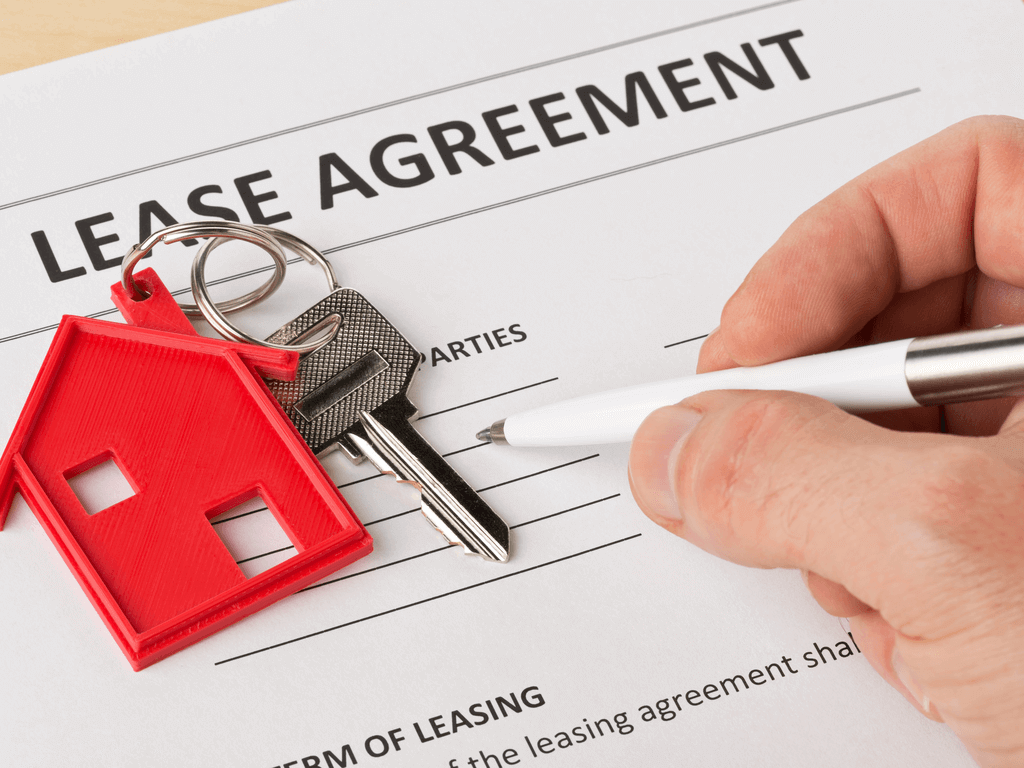What is Missing From Your Lease Agreement?

Everyone needs a place to live, but not everyone can afford to own a home – or maybe they don’t want to be homeowners. In these cases, more often than not, people rent out apartments or homes. In 2019, renters in the United States numbered over 100 million, and that number is only growing. When a third of the country rents their domestic dwellings, the binding lease agreements that make it possible become more important than ever. Your lease agreement has to be thorough and clear for your sake, whether you’re a tenant or a landlord.
While the landlord typically provides the lease agreement, it’s better to have an attorney review it before anyone signs it. As a tenant, you want to make sure that your landlord isn’t trying to avoid giving you any rights or services they owe you. As a landlord, you want to make sure you didn’t make a mistake and leave out any restrictions.
To make sure nothing is missing from your lease agreement, contact the real estate attorneys at Mazzoni Valvano Szewczyk & Karam today.
What Does a Lease Agreement Need?
There are details that a lease agreement needs to and should have. This distinction is important because it can mean the difference between a symbiotic and parasitic relationship between tenant and landlord. These details include:
- Names of the landlord and tenant.
- Current addresses of the landlord and tenant.
- Rental property address.
- Length of tenancy or rental period.
- Rent amount and pay periods.
- Deposits and potential fees such as safety deposit, cleaning deposit, or last month’s rent.
- A list of utilities the landlord pays for, which ones are included in the rent, and which ones the tenant has to pay for.
- Condition of the apartment before the tenant moves in.
- The tenant’s responsibility is to maintain and repair the property.
- The conditions with which the landlord can enter the apartment unit without the tenant present.
- Grounds for termination of tenancy.
What Should a Lease Agreement Contain?
There are some things that if forgotten or intentionally left out, will leave the tenant, the landlord, or both parties at risk of having responsibilities they didn’t know about. This can be so a landlord can intentionally evict a tenant whenever they want without the tenant understanding why. This can also leave the landlord responsible for damages and costs that the tenant is usually responsible for. Sometimes, it can leave certain costs without someone to pay for them, leaving the property and habitability to suffer. This includes:
- Whether or not and when a tenant must notify the landlord of long absences. This is so the landlord can enter the apartment for maintenance purposes, such as during the winter when pipes on the property can freeze when they’re not heated.
- Limits on the tenant’s behavior. The landlord can restrict a tenant from using drugs, making loud noises, or making aesthetic changes to the property.
- Limits on the number of occupants. Some apartments become unsafe after they reach a certain number of people. Local zoning laws have occupancy limits that can cause legal trouble for the tenant and landlord if broken. The landlord should state the limit in the lease.
- Whether or not pets are allowed in the living space. There can be a restriction on the types of pets, the size of pets, and or no restrictions at all, but they should be stated. If the landlord does not specify rules on pets, there’s no legal reason a tenant should believe they can’t have one. While a pet owner is responsible for any damages their pets cause, it would be incredibly difficult to hold them responsible for anything but those costs.
- Restrictions on running home businesses. If a landlord doesn’t want a tenant to run a business out of their home, which is different from working from home, it needs to be stated in the lease. This is especially true if local zoning laws prohibit it. It is the landlord’s responsibility first to know and inform their tenants of laws like this.
- Restrictions on assignments or sublets. If a tenant wants to rent out a room, and the lease has no restrictions, it can be murky whether or not they can. Not only do zoning laws have to be considered, but a landlord may also want a cut of the money or for them to pay rent directly to them. Subletting can be profitable when the main tenant does the work of the landlord for them, but not every landlord is willing to allow that.
- Limits on how long guests can stay. Having someone stay an unlimited amount of time as the tenant’s guest can behave like a tenant who doesn’t pay rent. Because of this, many landlords will have a limit on how long guests can stay.
- Attorney fees over aspects of the leasing agreement. If there are parts of the leasing agreement that have been broken by either party, it can dictate who will pay them if the landlord and tenant must go to court for them.
Contact an Attorney To Assure Nothing is Missing in Your Lease Agreement
The real estate attorneys of Mazzoni Karam Petorak and Valvano have years of experience dealing with residential real estate law. If you’re a landlord looking to have your current lease agreements reviewed and improved, our attorneys can help you. If you’re a tenant and your potential landlord presents you with a lease agreement you’re unsure of, we can inspect it for you so you know everything expected of you.
Don’t sign anything until you’ve spoken with a lawyer. Contact our attorneys today.

